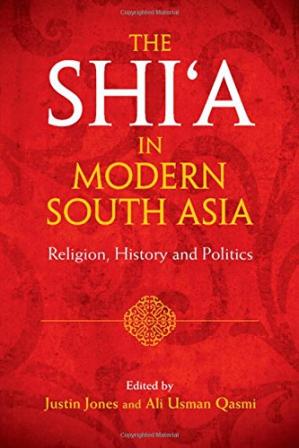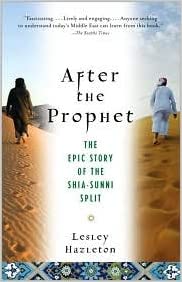Blasphemy Cases Against Shiite Community Surge in Pakistan
Punjab Police in first 10 days of the Islamic Month Muharram registered more than 150 cases under blasphemy laws against the Shi’a Muslims, according to Shi’a Ulema Council Punjab and country’s human rights groups.
South Asian country’s independent Human Rights Commission’s Vice President Qazi Khizer Hayat told Shi’a Muslim Genocide -SMG, “In first 10 days of Muharram, Punjab Police registered 150 Blasphemy cases against the Shi’a Muslims and these cases were registered over practicing their religious duties. Many Shi’as Azadar were booked under blasphemy cases over just reciting Nad-i- Ali or Waving Flag of Ghazi Abbas or organizing the Commemoration meetings of mourning of Imam Hussain even in the Walled boundary”.
“Pakistani police had registered at least 40 blasphemy cases in August 2020. Most of these cases were filed against Shiite Muslims in relation to speeches made at religious processions”, Said Qazi Khizer Hayat.
Hardline anti-Shi’a Takfiri groups organized large scale rallies against the Shi’a Muslim community and asked local administration to ban this or that commemoration Meeting or Procession in many cities.
According to media reports Punjab Police in some rural areas sealed Imambarghas and banned on informal but very old historical mourning processions.
In August 2020, hardline anti-Shia Takfiri groups had organized a large-scale rally against Shi’a Muslim in the country’s financial hub, Karachi. Thousands of people had participated in the demonstration and chanted anti-Shi’a slogans, including “Shia kafir” (Shiites are infidel).
Takfiri Anti- Shi’a groups accuse Shi’a of blasphemy over practicing their beliefs.
In the past decade, pro-Saudi Takfiri Deobandi militant extremists have intensified their attacks on Shi’a Muslim, while declaring them ‘Apostates’.
Fear of violence
The rise in blasphemy accusations and street protests against Shi’a Muslim has raised concern about a possible violent Massacre of Shi’a Muslim in the country.
“It is an unprecedented rise, and we are worried it can flare violence led to Genocide of Shi’a Muslim,” Mehdi Hasan, chairman of the Human Rights Commission of Pakistan (HRCP), had told to reporters just before his death.
Rights groups criticize the government for not taking action against hardline anti-Shi’a sectarian outfits, some of which are banned in the country.
Asad Iqbal Butt, a senior official of the HRCP, says the authorities are not doing anything to rein in Takfiri extremist groups.
“The situation is alarming not only for Shiites but also for the members of other minority groups. The government has turned a blind eye to Anti-Shi’a sectarian organizations that are spreading hatred against Shiites and other religious minorities,” Butt told SMG.
In July, lawmakers of the provincial Punjab assembly had passed a legislative bill which has banned every Muslim either he/she belongs to Shi’a or Sunni Muslim from adding علیہ السلامwith names of Ahul albyat.
Shi’a activist Ahsan Rizvi told SMG that most of the blasphemy cases against Shi’a Muslim have been filed after the passage of the bill. “More than 300 cases have been registered since 2020 and more people are being booked. One Shi’a cleric Asif Alvi fled the country due to death threats against him and some were arrested by police,” Rizvi said.
‘Often Shi’a Muslim are being booked under PPC 295, 295 A and Prevention of Cyber Crimes Act , 25 D of Telegraph Act’ ,revealed Murtaza Sherazi member of Shi’a Ulema Council Punjab.
Blasphemy is a sensitive topic in the Islamic Republic of Pakistan, where 97 percent of its 180 million inhabitants are Muslims. According to Pew Research Center, adherents of Shiite Islam in Pakistan make up between 15-20% of the country’s total population.
Pakistan’s blasphemy laws have come under hefty criticism, as they have often been used to target minorities, activists, and to settle personal vendettas. Although no one has yet been executed under the laws, dozens of people are currently sitting on death row due to blasphemy convictions.
According to rights groups, around 1,549 blasphemy cases were registered in Pakistan between 1987 and 2017. More than 75 people have so far been killed extra-judicially after blasphemy allegations. Some of them were even targeted after being acquitted in blasphemy cases by courts.
In 2018, Asia Bibi, a Christian woman, was acquitted on appeal and left the country, provoking violent protests across Pakistan.
Peter Jacob, a rights activist, said he was concerned at the recent spike in blasphemy cases, which also involved other minority groups. “In recent weeks, three members of the minority Ahmaddiya community have been killed – one over alleged blasphemy and other for unknown reasons. Some Christians have also been booked in blaspheme cases. Now even Shiite Muslims are being targeted, with extremist groups openly spreading hatred against them,” Jacob told SMG.
Ishaq Khakwani, a former federal minister and member of the ruling Pakistan Tehreek-e-Insaf (PTI) party, admits that the situation is worrisome. “I am concerned over an increase in blasphemy cases. People are afraid of supporting the accused. Even if the person who is accused of blasphemy is released, his life continues to be in danger,” he told SMG.
According to data given in the book ‘Shi’a Genocide in Pakistan: Myth or Reality ‘compiled by Punjab based Journalist Aamir Hussaini, published in 2019, from 1961 to 2015 more than 25,000 Shi’a Muslim in Pakistan have been killed by Anti-Shi’a Takfiri Deobandi militant organizations. Anti-Shi’a Takfiri groups active in Pakistan on one side are running the campaign for declaring the Shi’a Muslim community ‘Non-Muslim’ like Ahmadiyya Community and other side they incite young Sunni people to commit fatal or lethal violence against Shi’a Muslim. Anti-Shi’a sectarian groups want to snatch religious freedom from Shi’a Muslim community through oppression or through legislation.






